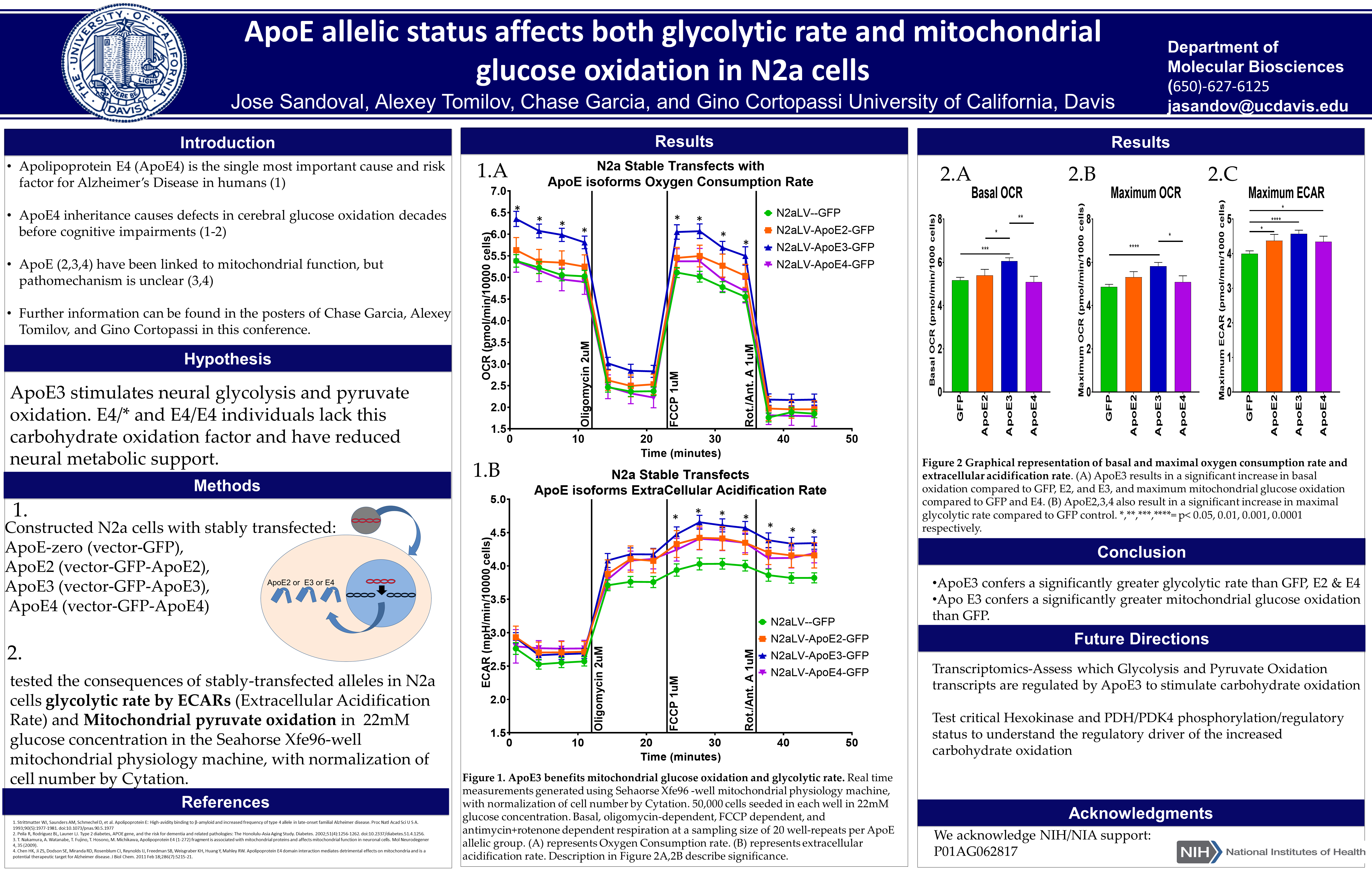
Jose Sandoval, Alexey Tomilov, Chase Garcia, and Gino Cortopassi
Introduction:
- Apolipoprotein E4 (ApoE4) is the single most important cause and risk factor for Alzheimer’s Disease in humans (1)
- ApoE4 inheritance causes defects in cerebral glucose oxidation decades before cognitive impairments (1-2)
- ApoE (2,3,4) have been linked to mitochondrial function, but pathomechanism is unclear (3,4)
- Further information can be found in the posters of Chase Garcia, Alexey Tomilov, and Gino Cortopassi in this conference.
Methods:
(1) Constructed N2a cells with stably transfected:
- ApoE-zero (vector-GFP),
- ApoE2 (vector-GFP-ApoE2),
- ApoE3 (vector-GFP-ApoE3),
- ApoE4 (vector-GFP-ApoE4)
(2)Tested the consequences of stably-transfected alleles in N2a cells glycolytic rate by ECARs (Extracellular Acidification Rate) and Mitochondrial pyruvate oxidation in 22mM glucose concentration in the Seahorse Xfe96-well mitochondrial physiology machine, with normalization of cell number by Cytation.
Conclusion:
- ApoE3 confers a significantly greater glycolytic rate than GFP, E2 & E4
- Apo E3 confers a significantly greater mitochondrial glucose oxidation than GFP.